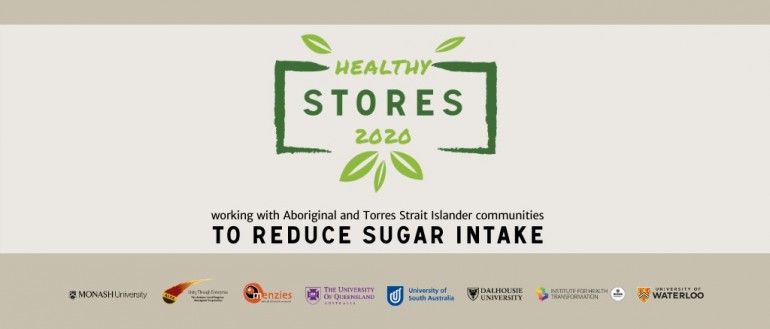Reducing in-store merchandising of unhealthy foods and drinks can reduce the purchase of those items, new research conducted in remote communities has found.
The research, Healthy Stores 2020, examined how the store environment can be modified by working with retailers and store owners to reduce the purchase of discretionary products, and potentially impact on health.
Healthy Stores 2020 aimed to reduce the volume of high-sugar food and drinks purchased, for example sugary drinks, table sugar, confectionery and sweet biscuits, by restricting the merchandising of these products.
As a result of the strategy:
- the volume of sugar purchased plummeted;
- in 12 weeks across 10 stores, 1.8 tonnes less free sugar was purchased through foods and drinks. That’s equivalent to the weight of a large car; and,
- store sales didn’t drop off.
Associate Professor Julie Brimblecombe in Nutrition, Dietetics and Food at Monash University and an honorary research fellow at Menzies is a co-joint first author of the study. She said that Healthy Stores 2020 is the first study to show that limiting tactics that are frequently used to stimulate sales such as price promotions and product placement can also have an effect on sales of unhealthy food and drinks.
“This strategy has important health implications and is an opportunity to improve diets and reduce associated non-communicable diseases. It also offers a way for supermarkets to position themselves as responsible retailers, which could potentially strengthen customers loyalty without damaging business performance.”
Emma McMahon, a research fellow at Menzies and co-joint first author of the study, anticipated that the strategy would work best on impulse purchases, such as confectionary rather than staple items such as table sugar.
“Sweet biscuits are more likely to be an impulse purchase, but they are less likely to be displayed in prime locations like confectionery and so, there is less opportunity for people to pick them up randomly. A different strategy for biscuits and items like table sugar should be explored to stimulate change in those buying behaviours."
Healthy Stores, a collaboration between Monash University, Arnhem Land Progress Aboriginal Corporation (ALPA) and Menzies was implemented across 20 remote community stores in the Northern Territory and Queensland.
Find out more about the research at Healthy Stores 2020.

